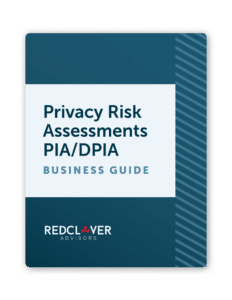It’s not a big stretch to say that some companies don’t like privacy regulations. Some see these laws as onerous, inconvenient, taxing, expensive, and unnecessary.
Here’s the thing: car companies said the same thing about seat belts when they became mandatory in 1968.
Think about all the regulations we have regarding car safety, from seat belts to annual inspections to safety tests during model production. Most people don’t see those requirements as inconvenient or unnecessary. They see them as necessary measures to protect their safety and the safety of their loved ones.
You can probably see where this is going, right?
Privacy Impact Assessments (PIAs or DPIAs) are like the safety tests car manufacturers perform during production. They’re critical to ensuring consumers are protected and that a company’s product, service, or feature functions as intended.
It’s easy to see how PIAs directly benefit consumers. However, what may not be so obvious is how they benefit the companies that conduct them.
So, let’s talk about four ways that PIAs benefit companies, from risk mitigation to improved product rollout.
1. Privacy law compliance
Legal compliance is perhaps the most obvious benefit of conducting PIAs—it’s always nice not to get in trouble with your state attorney general.
It’s also just good business.
In recent years, an increasing number of states have adopted statutes that require PIAs to be conducted regularly, or at least that companies must be able to provide a PIA to the state upon request.
For example, Colorado, one of the earliest adopters of an AI act under the state’s consumer protections framework, requires impact assessments within 90 days of any intentional or substantial modification to a high-risk AI system.
Other states, including Virginia, California, Connecticut, Tennessee, and Montana, explicitly require PIAs for data processing with a “heightened risk” to consumers, including:
- Processing sensitive personal data
- Targeted advertising
- Sale of personal data
- Profiling based on consumer data
Even states that may not explicitly require a PIA have regulations that functionally necessitate them to evaluate a business’s consumer data protections adequately.
Complying with these regulations from a legal standpoint is critical to a business’s bottom line, including:
- State (or international) fines if found in violation
- Legal fees
- Crisis PR fees
- Loss of employee trust, consumer trust, and partner trust
While it may be tempting to rush through a PIA or skip over it, failure to undergo PIAs can have far-reaching consequences.
2. Consumer trust
Let’s discuss consumer trust a bit more. Privacy impact assessments are key to assuring customers that your product/service/feature is safe for public consumption. They flag any privacy risks so companies can mitigate them before rollout.
Consider, for example, if it was made public knowledge that a car manufacturer failed to comply with safety testing, like these three manufacturers:
- Toyota-owned Daihatsu had to halt production for falsifying safety records.
- Volkswagen’s testing modification software scandal resulted in billions in recall costs and fines, as well as a loss of consumer trust.
- The Takata exploding airbag scandal led to at least 14 deaths and the company’s bankruptcy.
Beyond the danger of serious bodily harm to consumers, the PR scandals caused by these falsified records and the failure to test consumer products properly led to bottom-line declines.
While a PIA hopefully won’t (you never know, it all depends on how data is used!) have the same life-and-death consequences as faulty airbags, they exist for the same reason: to protect consumers.
For example, many states require PIAs for any product or features built for minors.
Businesses that invest in PIAs not only meet compliance requirements but can also position their products better among their audiences. Parents are much more likely to research products for their children’s consumption. From consumer reviews to blogs to social media, parents pay attention to whether these products can be safely used by their children.
3. Efficient operations
Many things can get in the way of operational efficiency, and privacy issues are one of them. For example:
- The lack of clear data-sharing protocols between departments leads to inconsistent or insecure data handling.
- The collection of excessive data increases storage costs and compliance risks.
- The dependence on third-party integrations without vetting their security measures.
These can lead to missed launch deadlines, higher costs from last-minute fixes, and even regulatory trouble if data breaches occur.
However, by conducting PIAs from the jump, businesses can identify and address potential privacy risks before they create traffic jams. PIAs can also help with data collection by ensuring only necessary data is collected, processed, and stored.
The less information gathered, the more efficient (and secure) data management practices can be.
Additionally, regular PIAs contribute to a privacy-first culture. There are two significant outcomes to mention here:
- Privacy-related decisions are easier to make when not foreign to the organization.
- Employees become more aware of privacy, potentially reducing the number of privacy-related incidents and the associated operational disruptions.
Finally, well-documented PIAs can simplify audit and documentation processes, streamlining privacy audits and responses to regulatory inquiries. This can save significant time and resources when dealing with compliance requirements or regulatory reviews.
4. Smoother product rollouts
Launching a new product/service/feature always carries risk, whether from a technical issue or customer reception. The more you can eliminate those risks in advance, the more likely your rollout will succeed in the market.
PIAs are a great tool for mitigating some of these risks before they escalate. Integrating privacy into operations can lead to much smoother product rollouts.
Say you’re about to roll out an app for your e-commerce business with an AI-driven recommendation feature. The impact assessment could reveal that the AI model sources user data from multiple systems without consistent security protocols, increasing the risk of data breaches and operational overhead
For companies looking to optimize their product development structure, PIAs can support a strategy called “privacy by design.” Essentially, it’s a product development strategy that centers data privacy as an integral part of product design rather than an afterthought or add-on. This approach further streamlines production and ensures compliance. It can also be used in marketing and sales to foster consumer trust.
Bottom line? It’s a lot easier—and a lot less money—to address privacy issues before a product or campaign is released rather than after the fact.
Privacy Risk Assessments: PIA/DPIA Business Guide
Our Privacy Risk Assessment Guide breaks down the privacy review process with clear, straightforward language.

Drive your business forward with privacy impact assessments
Privacy impact assessments may seem like another compliance task, but they offer far-reaching benefits. From ensuring privacy compliance and fostering consumer trust to streamlining operations and enabling smoother product rollouts, PIAs are a major advantage for any company handling consumer data.
Embracing PIAs is about more than meeting regulatory requirements—it’s about building better, safer, and more reliable products for everyone.
Want to learn more? Download Red Clover Advisor’s free PIA/DPIA business guide, or schedule a consultation to learn how to implement efficient privacy impact assessments for your business.


